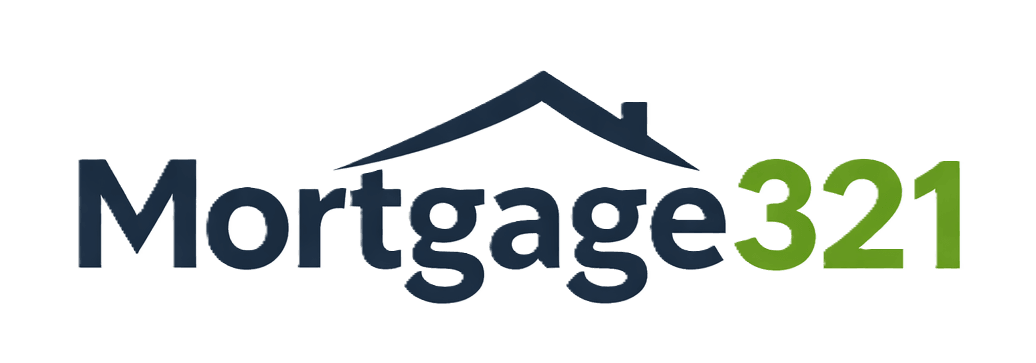How to Get the Best Interest Rate Deal on a UK Mortgage
MP
In today's ever-changing financial landscape, securing the best interest rate on a UK mortgage is more crucial than ever. With fluctuating rates and the wide variety of mortgage products available, it's essential to be informed and strategic in your approach.
At Mortgage321, we're committed to helping you navigate the mortgage market with confidence. Here are some top tips on how to secure the best interest rate deal on your UK mortgage.

1. Understand Your Financial Position
Before diving into the mortgage market, it's important to have a clear understanding of your financial situation. Lenders will scrutinise your credit score, income, and outgoings, so it's essential to know where you stand.
Credit Score: A strong credit score is one of the key factors that can influence the interest rate you're offered. If your credit score needs improvement, consider taking steps to enhance it before applying for a mortgage. This might include paying down existing debts, ensuring you're on the electoral roll, and correcting any inaccuracies on your credit report.
Income and Outgoings: Lenders will assess your affordability, so having a stable income and manageable outgoings will make you a more attractive candidate for a lower interest rate.
2. Research the Market
The UK mortgage market is vast, with hundreds of products available from different lenders. While this can be overwhelming, it also means there are plenty of opportunities to find a great deal.
Comparison Sites: Use mortgage comparison sites to get an idea of the rates currently available. This will give you a benchmark to work from as you start your search.
Mortgage Brokers: A mortgage broker, like Mortgage321, can be invaluable in this process. Brokers have access to a wide range of mortgage products, including exclusive deals that may not be available directly to consumers. We can help match you with the best lender based on your financial situation and goals.

3. Consider a Fixed-Rate vs. Variable-Rate Mortgage
One of the first decisions you'll need to make is whether to opt for a fixed-rate or variable-rate mortgage.
Fixed-Rate Mortgages: These offer the security of knowing your interest rate (and thus your monthly payments) won't change for a set period, typically 2, 3, or 5 years. Fixed-rate mortgages are particularly appealing in a rising interest rate environment.
Variable-Rate Mortgages: These can be more flexible, often offering lower initial rates, but your payments could increase if interest rates rise. Types of variable-rate mortgages include tracker mortgages, which follow the Bank of England base rate, and discounted variable rates, which are linked to the lender's standard variable rate.
4. Consider Your Loan-to-Value (LTV) Ratio
The Loan-to-Value (LTV) ratio is the amount you’re borrowing compared to the value of the property. The lower your LTV, the better the interest rate you're likely to be offered.
Increase Your Deposit: By increasing your deposit, you can reduce your LTV and, consequently, secure a lower interest rate. For example, moving from a 90% LTV to an 85% LTV could result in significant savings over the life of your mortgage.
5. Factor in Additional Costs
While securing a low-interest rate is important, it's also essential to consider the overall cost of the mortgage. Some mortgages with low-interest rates come with high arrangement fees, which can offset the benefits of the lower rate.
Arrangement Fees: These are one-off charges that some lenders apply when setting up your mortgage. It's important to weigh up whether a mortgage with a lower rate but higher fees is more cost-effective than one with a slightly higher rate but lower fees.
Early Repayment Charges (ERCs): If you plan to overpay or pay off your mortgage early, check whether the mortgage comes with ERCs, which could negate some of your interest savings.

6. Stay Informed and Be Ready to Act
Interest rates can change rapidly, and the best deals can disappear as quickly as they appear.
Get a Mortgage in Principle: Having a Mortgage in Principle (MIP) shows sellers that you’re serious and can give you an edge when making an offer on a property. It also means that once you find a suitable property, you can move quickly to secure the best mortgage deal.
Regularly Review Your Mortgage: Once you've secured your mortgage, it's important to regularly review it, especially when your initial fixed or discount period comes to an end. Refinancing or remortgaging could help you lock in a better rate in the future.
7. Consult a Mortgage Broker
Finally, the best way to ensure you're getting the best interest rate is to consult with a mortgage broker. At Mortgage321, we specialise in finding the most competitive mortgage deals tailored to your individual needs. With access to a wide range of lenders and exclusive products, we can help you secure a mortgage that aligns with your financial goals.
Conclusion
Securing the best interest rate on your UK mortgage requires careful planning, research, and sometimes a bit of expert help. By understanding your financial situation, comparing products, and working with a trusted mortgage broker like Mortgage321, you can confidently navigate the mortgage market and secure a deal that’s right for you.
If you're ready to explore your mortgage options, contact us today on 01255 440142, email us or Whatsapp us at Mortgage321. We're here to help you every step of the way.
